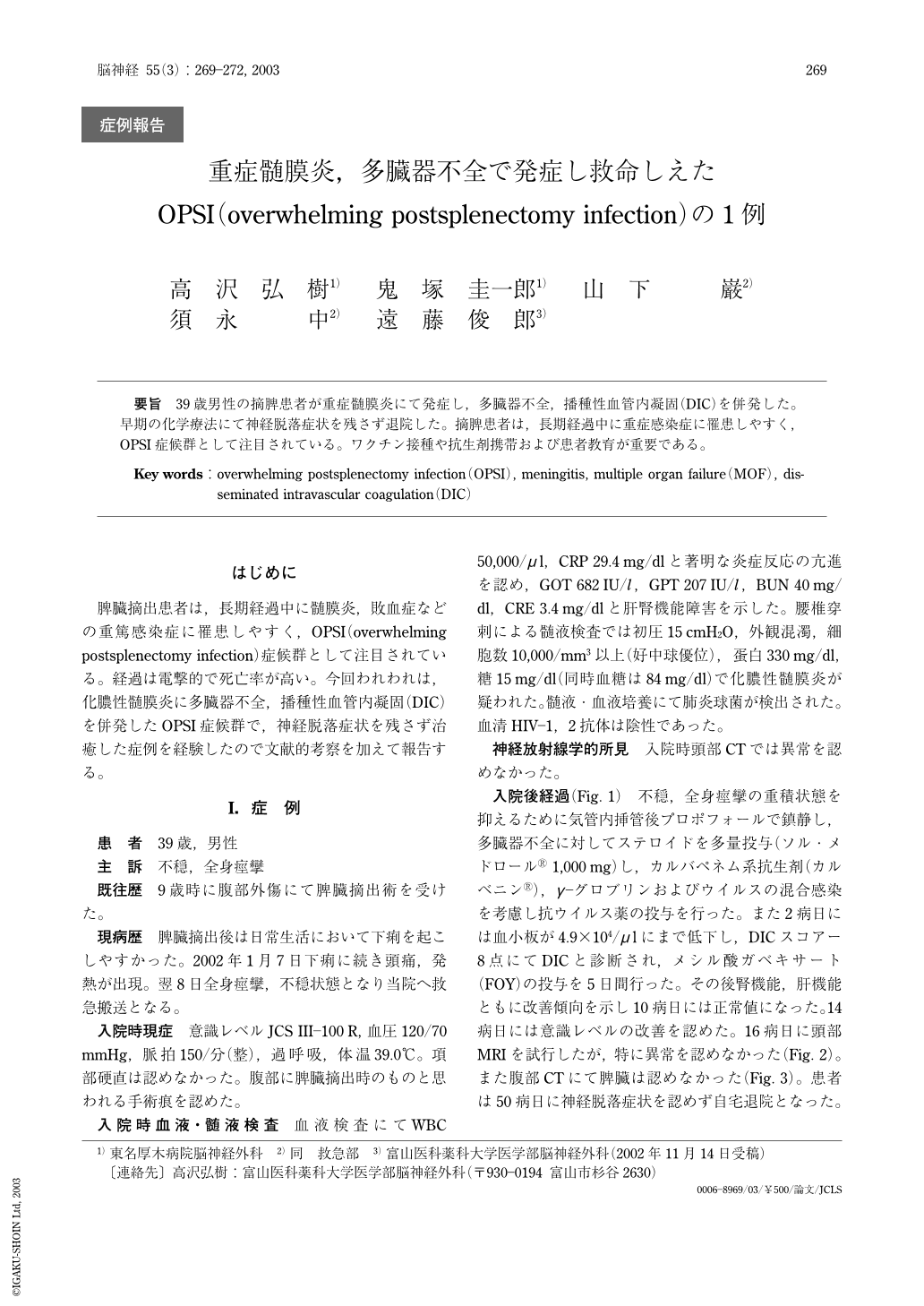Japanese
English
- 有料閲覧
- Abstract 文献概要
- 1ページ目 Look Inside
要旨 39歳男性の摘脾患者が重症髄膜炎にて発症し,多臓器不全,播種性血管内凝固(DIC)を併発した。早期の化学療法にて神経脱落症状を残さず退院した。摘脾患者は,長期経過中に重症感染症に罹患しやすく,OPSI症候群として注目されている。ワクチン接種や抗生剤携帯および患者教育が重要である。
A 39-year-old man,who had splenectomy following abdominal trauma 30 years previously, admitted to our hospital with high fever, headache and convulsion on January 8, 2002. Examination of cerebrospinal fluid(CSF) showed pleocytosis up to 10,000cells/mm3 with polymorphonuclear cells dominant and elevated protein to 330mg/dl and reduction of glucose to 15mg/dl. Streptococcus pneumoniae was detected at the culture of CSF and blood. We diagnosed him as having pneumococcal meningitis as overwhelming postsplenectomy infection(OPSI) syndrome. After administration of carbapenem antibiotics, methylprednisolone(1,000mg) and immunoglobulin, he survived without any complications. Splenectomized patients are likely to suffer from severe infections, such as sepsis and meningitis, which is called OPSI syndrome. The course is rapid, the clinical symptoms are serious, and the prognosis is very poor. It is important for splenectomized patients to receive the vaccine, antibiotic prophylaxis and seek medical attention at the earliest sign of minor infection.

Copyright © 2003, Igaku-Shoin Ltd. All rights reserved.


